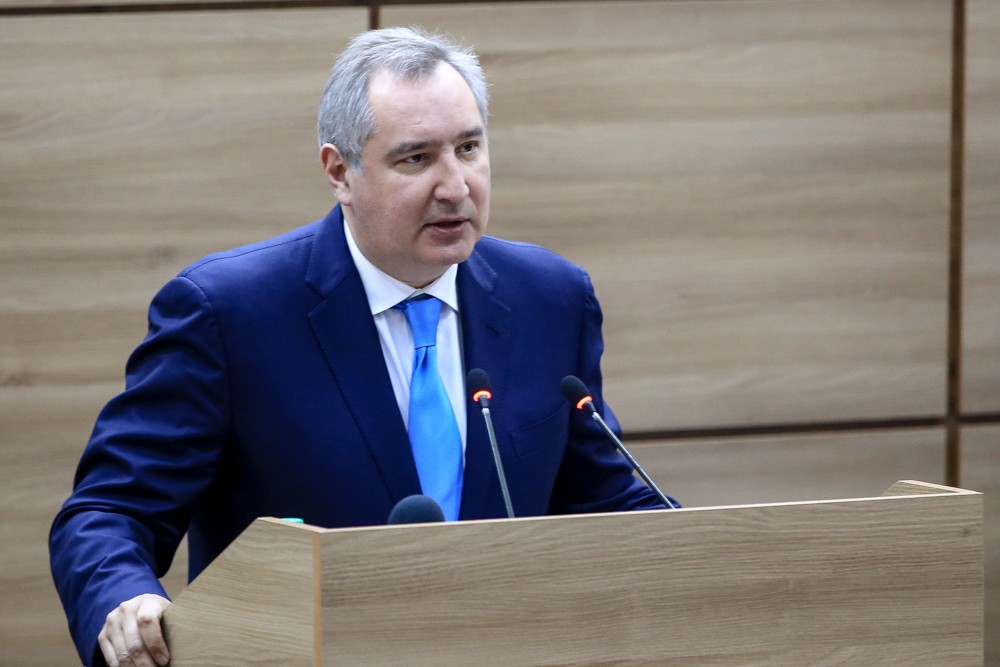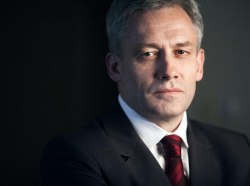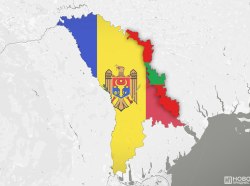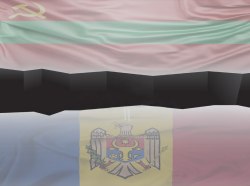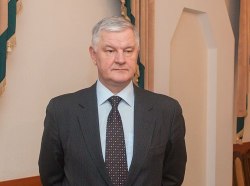Tiraspol, 6 July. /Novosti Pridnestrovya»/. Russia's Vice Premier Dmitry Rogozin made a speech in the Supreme Council of Pridnestrovie. He spoke about the key aspects of relations between Russia and Pridnestrovie. Novosti Pridnestrovya cites the most interesting subjects from Rogozin's address to Pridnestrovian MPs.
On relations with the leadership of the PMR
Dmitry Rogozin noted that in four years systemic relations had been built between Russian and Pridnestrovian agencies.
"I make regular reports to the Russian president on the whole situation, which we estimate and analyse. Therefore, Vladimir V. Putin firmly keeps, as we say, a hand on the pulse, take interest in what is going on in the region, what is happening in Pridnestrovie. He is fully aware about all the nuisances of Pridnestrovie's domestic and foreign policy," said the vice premier.
Rogozin recalled that in 2013 a framework memorandum had been signed with Yevgeny Shevchuk, and two years after the first series of interagency cooperation memorandums had followed. Now there are 15 such memorandums.
"We chose the way of direct horizontal relations between Russian and Pridnestrovian ministries and agencies. This does not go counter to international legislation," he explained.
"The Rogozin-Shevchuk protocol works. It should be further developed and extended. And on the whole, it entirely proved its worth in the most difficult period for Pridnestrovie," said Rogozin.
On economic assistance to Pridnestrovie
Dmitry Rogozin revealed the principle of economic assistance to Pridnestrovie. "We don't give fish, we give a fishing rod", he said, emphasising that Russia is aimed at stimulating the development of the Pridnestrovian economy rather than one-sided financing of the country.
"We are planning to cooperate with a number of Pridnestrovian enterprises within the government's defense order," Rogozin cited an example.
He said that Russia intended to allocate about 30 million roubles for the reconstruction and development of irrigating systems in Pridnestrovie.
"I believe that this is a new emphasis in our relations," said the vice premier.
"It is important for us that Pridnestrovie have all the necessary capacities for processing fruit, vegetable and wine-making products. So that it will be possible to supply them to the Russian market as processed and finished products rather than as raw materials. Then products will acquire additional value and will be safely delivered to Russia. That's where the emphasis should be placed, as we discussed it with members of the Pridnestrovian government," said Rogozin.
According to him, the country has to build up relations with Russian regions for successful development. According to him, this is a more convenient way of building economic relations.
"Today it is very important for Pridnestrovie to establish direct contact with the Russian regions whose business profile is of interest to Pridnestrovie. These are the regions producing agricultural goods, agricultural and processing equipment. [Russia's] industrial enterprises receiving governmental contracts will be able to build relations with Pridnestrovian enterprises," said the Russian politician.
On personnel problem
Dmitry Rogozin declared Russia's readiness to assist Pridnestrovie in training professional governmental officials.
"Pridnestrovie's economic problems cannot be solved without [qualified] personnel," believes Rogozin.
He noted that qualified specialists strive to move to big cities as regions lose human capital.
"This problem is typical of any region sending its children to the capital. People do not come back," says the politician.
"A system of incentives is required to return qualified specialists to Pridnestrovie. We are ready to launch such a programme. Especially for specialists in the spheres of tax and customs policy, budget financing and economists," said Rogozin.
On the policy of small "good deeds"
The Russian vice premier highlighted the necessity of pursuing the policy of "good deeds" in relations between Pridnestrovie and Moldova.
"The Russian Federation shows Kishinev the need to pursue the policy of small, but good deeds which must be done to ease the tensions constantly aggravated, unfortunately, by our neighbours," said Rogozin.
"We positively estimate the work of our Pridnestrovian colleagues in the sphere of foreign policy. On our part we highly value the status of guarantor and mediator in the negotiation process. We expect that coordinated approaches toward the peacekeeping operation will not change in the foreseeable future," he underscored.
On Russia's peacekeeping mission in Pridnestrovie
"To all appearances, the peacekeeping operation will last long," Rogozin is sure.
"The hostile measures that the Moldovan side has taken in the past two years, trying to hinder the rotation of our servicemen and the supply of cargoes have yielded unexpected resulted for them. Now our military have become self-sufficient, purchasing goods in Pridnestrovie. This has benefited the Pridnestrovian economy," noted the vice premier.
"There is no point in gripping the Russian army in a purely economic, customs and administrative vice. No one will ever manage to do it. As I joke about this, tanks do not need visas. But let's not proceed with far jumps. At least here our peacekeepers will fully fulfil their duty, and you may totally rely on Russia's impeccably complying with its status of a peace guarantor on the Dniester," said Rogozin.
"Russia is ready to any development of the situation in the region," he concluded.
On humanitarian assistance to Pridnestrovians
Dmitry Rogozin said that Russia intends to continue its humanitarian projects in Pridnestrovie. He recalled that back in 2013 a large scale project had been launched through ANO Eurasian Integration. The construction of 12 social facilities, including kindergartens, hospitals and educational institutions, had begun. Besides, buildings had been repaired and the fleet of ambulances had been renewed.
In Kishinev a prison was built at the expanse of the EU's funds, and in Pridnestrovie Russia built kindergartens and schools, Rogozin said.
"This means Russia is absolutely convinced that Pridnestrovian children will get a good, bright, normal and safe future," he underscores.
The vice premier also noted that Russia would raise the issue of opening a general consulate in Tirapol as relations between Moldova and Russia would resume.
He pointed out, at the same time, that Pridnestrovians' issues related to residence permits, patents, etc. are considered by Russian migration authorities in an absolutely favourable manner.
According to the politician, this week Pridnestrovie has received funds for paying pension allowances in the second half of 2016.
"Funds are allocated in the same volume as before. This is our principled stance," underscored Rogozin.

